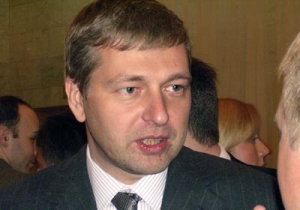 The Russian “businessman” to whom Donald Trump sold his Palm Beach mansion for a purported $100 million was arrested in Russia in April of 1997 and charged with masterminding the killing of a business rival, in what law enforcement authorities called “a contract hit.”
The Russian “businessman” to whom Donald Trump sold his Palm Beach mansion for a purported $100 million was arrested in Russia in April of 1997 and charged with masterminding the killing of a business rival, in what law enforcement authorities called “a contract hit.”
The MadCowMorningNews has uncovered an April 13, 1997 report in the official Russian news agency TASS announcing that Russian law enforcement authorities arrested Russian fertilizer king Dmitry Rybolovlev and charged him with being behind the murder of the head of another Russian chemical company, in what authorities said was a war for control of Russia’s lucrative fertilizer business.
“The suspected murderers and organizers of the crime, including the head of the FD-Kredit Bank, Dmitry Rybolovlev, have been arrested,” TASS reported.
 Trump’s announcement of his big sale Wednesday received wide play. It was trumpeted everywhere from the Wall Street Journal to Entertainment Tonight.
Trump’s announcement of his big sale Wednesday received wide play. It was trumpeted everywhere from the Wall Street Journal to Entertainment Tonight.
The Wall Street Journal, with perhaps unintended irony, called Rybolovlev, a 42-year-old Russian billionaire who currently ranks #59 on the Forbes list of the world’s billionaires, “one of Russia’s richest and most discreet businessmen.”
None of the stories mentioned Palm Beach’s newest billionaire’s mainline connection to the Russian Mob.
The real ‘never-ending story’
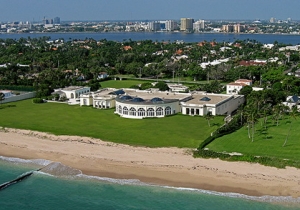 How Donald Trump came to own and sell Maison de l’Amitie, his 6.5 acre Palm Beach waterfront estate, is just the latest chapter in the “Never-Ending Story,” the continuing saga of the moves and machinations of spooks & crooks and other major players in the netherworld of transnational organized crime.
How Donald Trump came to own and sell Maison de l’Amitie, his 6.5 acre Palm Beach waterfront estate, is just the latest chapter in the “Never-Ending Story,” the continuing saga of the moves and machinations of spooks & crooks and other major players in the netherworld of transnational organized crime.
Billionaire mogul Trump supposedly received a massive windfall, selling a property for one of the the highest prices ever paid in the United States that he had scooped-up at a bankruptcy sale five years earlier.
Trump’s self-promoting announcement yesterday may inadvertently provide a public service, shining a spotlight on the dark 21st Century phenomenon of the corruption of hapless nation-states by the insidious forces of global organized crime, who clearly appear to have a leg up in the contest.
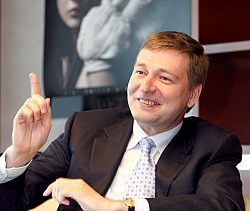 News accounts identified Dmitry Rybolovlev, the man whose investment company purchased Trump’s lavish 6.3-acre estate, as, variously, a ‘Russian businessman,’ a ‘Russian oligarch,’ a ‘mysterious Russian billionaire.,’ a ‘Russian fertilizer magnate’ and a ‘fertilizer billionaire.’
News accounts identified Dmitry Rybolovlev, the man whose investment company purchased Trump’s lavish 6.3-acre estate, as, variously, a ‘Russian businessman,’ a ‘Russian oligarch,’ a ‘mysterious Russian billionaire.,’ a ‘Russian fertilizer magnate’ and a ‘fertilizer billionaire.’
The Russian oligarch’s fortune increased by an amazing $10 billion, just in the past year, according to London’s Financial Times.
And all this time we thought the hot tip was plastics.
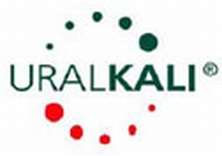 Rybolovlev runs Uralkali, a Soviet-era fertilizer company founded in the 1930’s, and his designation as “fertilizer king” should have been newsworthy, marking him as the first person from that industry to splash in quite such dramatic fashion onto the “lifestyles of the rich and famous” Palm Beach social scene.
Rybolovlev runs Uralkali, a Soviet-era fertilizer company founded in the 1930’s, and his designation as “fertilizer king” should have been newsworthy, marking him as the first person from that industry to splash in quite such dramatic fashion onto the “lifestyles of the rich and famous” Palm Beach social scene.
But the fertilizer business— as an explanation for a $13 billion fortune—left suspicions. No one in the recorded history of Planet Earth has ever made $10 billion dollars in fertilizer before, let alone in just one year.
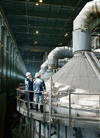 IS DMITRY Rybolovlev really the world’s first horse-manure billionaire?
IS DMITRY Rybolovlev really the world’s first horse-manure billionaire?
Or… is it just a lot of bullshit?
While no questions were raised, no one can claim to be wholly ignorant of what is going on in Russia, a country that has been described as a “kleptocracy from top to bottom;” as well as a “semi-criminal State.”
According to estimates of Russia’s Interior Ministry, two-thirds of the Russian economy is under the sway of organized crime. Crime syndicates enjoy the protection of the ruling oligarchy, which consolidated its power during Yeltsin’s long drunken twilight during the late 90’s.
Two hundred of Russia’s largest crime gangs are now global conglomerates.
Coming through for you… but for how long?
 The MadCowMorningNews alone decided to take a look at Trump’s new business pal…
The MadCowMorningNews alone decided to take a look at Trump’s new business pal…
So before passing along the juicy details, we need to stop here a moment. And urge you to take a look and a listen to what its taken just to “stay in play,” as an independent investigative reporter in the field, and knocking on doors.
What being a dissident journalist is about is looking into things you’re not supposed to.
So consider this a shameless plug, to say that to continue to do what we’re doing, we need your help.
Because this is news--two kick-ass books & five amazing documentaries-– that you won’t see anywhere else.
And nobody keeps it alive except you.
Resuming normal programming…
So what did we find?
In the April 13, 1997 story from the official Russian news agency TASS, Dmitry Rybolovlev had already been arrested, and stood accused of masterminding the murder of a rival for control of Russia’s lucrative fertilizer business.
“The suspected murderers and organizers of the crime, including the head of the FD-Kredit Bank, Dmitry Rybolovlev, have been arrested,” TASS reported.
Headlined “Investigation into Perm Businessman’s Murder Finalized,” the story stated that “An investigation into the murder of Yevgeny Panteleimonov, General Director of Neftekhimik, has been finalized and the materials passed over to the court.”
“It took the investigators two years to find out why the businessman was murdered in the doorway of his house. Observers believe the crime is related to the potassium and oil business, in which both the victim and the crime’s suspected organizer were involved,” TASS reported.
It came as no surprise when we discovered next that the murder went away, and that there has been no further mention of the matter in the Russian press since.
Five shots at close range. Three horrified daughters.
Back in 95, though, before the oligarchs tightened their icy grip, TASS had plenty to say on the day after the murder, calling it a “contract killing.”
TASS described the hit in a story with the headline, “Big Chemical Company Director Shot Down in Urals.”
“The general director of a big Russian Chemical company was killed on Monday by five pistol shots at the entrance to his apartment in Perm, a regional center in the Urals.”
“Yevgeny Panteleimonov, 44, was recently appointed General Director of Neftekhimik, a joint-stock chemical company with over 1500 employees, after his predecessor resigned (suddenly), for some reason choosing not to wait for a shareholder’s meeting.”
“Investigators appeared at the scene of the crime, which took the life of the father of three daughters, within fifteen minutes,” the report continued, and a dozen detectives had been assigned to the case.
And although the chief detective on the scene said they had no current hot leads, he helpfully offered that a similar crime involving the director of a big local firm had taken place just three weeks earlier, in which a bomb exploded which left the targeted businessman seriously wounded.
The “Octopussy” sets sail.
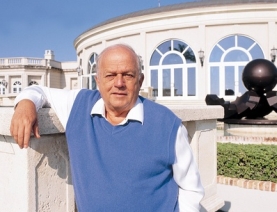 Trump bought the property for $41.4 million at a bankruptcy auction four years ago from its previous owner, who one writer described as “nursing home magnate and vulgarian-at-large Abe Gosman.”
Trump bought the property for $41.4 million at a bankruptcy auction four years ago from its previous owner, who one writer described as “nursing home magnate and vulgarian-at-large Abe Gosman.”
Gosman went belly up after Federal auditors began probing his Massachusetts nursing homes as part of a national anti-fraud campaign called—with no obvious intended irony—“Operation Restore Trust.”
In a time-honored tradition, Gosman had parked his assets in his wife’s name. But a federal bankruptcy judge ruled that he wasn’t legally married, because his new wife wasn’t yet legally divorced at the time of their big “theme” wedding aboard the Octopussy, Gosman’s luxury yacht.
Deep politics. Secret history. The morals of an alley cat.
Trump himself had first come to prominence with his 1987 purchase of the Resorts International gambling empire. With his colorful personality and (literally) over-the-top comb-over, Trump soon became a household name.
But while the name “Trump” appeared in advertising and headlines, the real ‘movers and shakers’ behind Resorts International were suspected of remaining hidden from public view.
Pulling no punches, New Jersey magazine called Resorts International, in print, “a mismanaged, unscrupulous, mob-tainted company with the morals of an alley cat.”
Ouch! Resorts International responded—in a move all-too-familiar to readers of The MadCowMorningNews—by promptly filing a lawsuit.
At the time of Trump’s purchase, Resorts International was widely reported to have deep ties to the CIA. Its previous owner, James Crosby, founded Intertel, an internationally-known security company often described as a private Central Intelligence Agency, which listed among its clients billionaire recluse Howard Hughes, the Shah of Iran and Nicaraguan dictator Anastasio Somoza.
“We can close the barn door now. The horse is gone.”
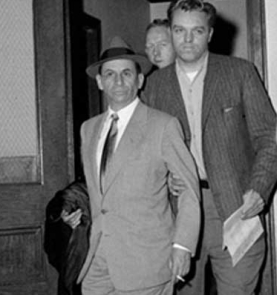 And that’s not to mention Resorts Mob ties…
And that’s not to mention Resorts Mob ties…
In a December 29, 1980, story headlined “Showdown in Atlantic City,” Fortune business magazine reported, “At Bally, the Lansky organization is far in the background, but it begins to move forward at Resorts International and Caesars World.”
The real story of the sale of Donald Trump’s Palm Beach mansion concerns the rapidly-accelerating growth of international Organized Crime, which has created a transnational crime curve which intelligence and law enforcement agencies have fallen 5-10 years behind.
Republican Attorney General Michael Mukasey, in a speech to an audience of intelligence analysts several months ago, warned that the biggest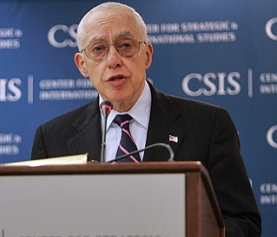 imminent threat to world order is currently posed–not by terrorists–but by the forces of transnational organized crime.
imminent threat to world order is currently posed–not by terrorists–but by the forces of transnational organized crime.
“International organized crime groups control significant positions in global energy and strategic materials, and are expanding holdings in the U.S. materials sector, corrupting the normal functioning of markets in ways that may have a destabilizing effect on U.S. geopolitical interests and posing real national security threats to this country,” Mukasey stated.
“They touch all sectors of our economy, dealing in everything from cigarettes to oil; clothing to pharmaceuticals. They are more sophisticated, they are richer, and they have greater influence over government and political institutions worldwide.”
An accelerating trend
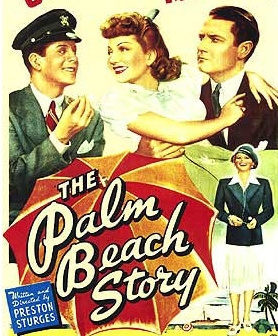 Clearly, times have changed in Palm Beach, and Donald Trump’s sale of his north-end mansion for $100 million can only accelerate the trend.
Clearly, times have changed in Palm Beach, and Donald Trump’s sale of his north-end mansion for $100 million can only accelerate the trend.
Once famous as America’s old-money winter enclave, a getaway for wealthy industrialists, the clash between old and new money has made it a slightly-more bohemian strip of sand for billionaires… There are more Eastern European accents, and more bodyguards wearing mirrored shades.
As the big Trump sale illustrates only too clearly… our worst fears have already come true.
And that’s today’s real Palm Beach story.


[…] whose clients numbered the late Shah of Iran and late Nicaraguan dictator Anastasio Somoza, thendied. His family sold the 93% control of Resorts International to…The Don, Donald Trump, in March […]
[…] whose clients numbered the late Shah of Iran and late Nicaraguan dictator Anastasio Somoza, then died. His family sold the 93% control of Resorts International to…The Don, Donald Trump, in March […]
[…] [17] Daniel Hopsicker, Trump Mansion Sold to “Mobsters Sans Frontières,” June 26, 2008 http://www.madcowprod.com/2008/06/26/trump-mansion-sold-to-mobsters-sans-frontieres/ […]
[…] whose clients numbered the late Shah of Iran and late Nicaraguan dictator Anastasio Somoza, then died. His family sold the 93% control of Resorts International to…The Don, Donald Trump, in March […]
[…] zählten der verstorbene Schah des Iran und der ehemaligeDiktator Nicaraguas, Anastasio Somoza.4 Dann starb dieser. Seine Familie verkaufte den 93-prozentigen Anteil an Resorts International im […]
[…] Rybolovlev “one of Russia’s richest and most discreet businessmen, no U.S. news outlet (except the MadCowMorningNews, which hardly counts) saw fit to mention Palm Beach’s newest resident’s prominent “ties” […]